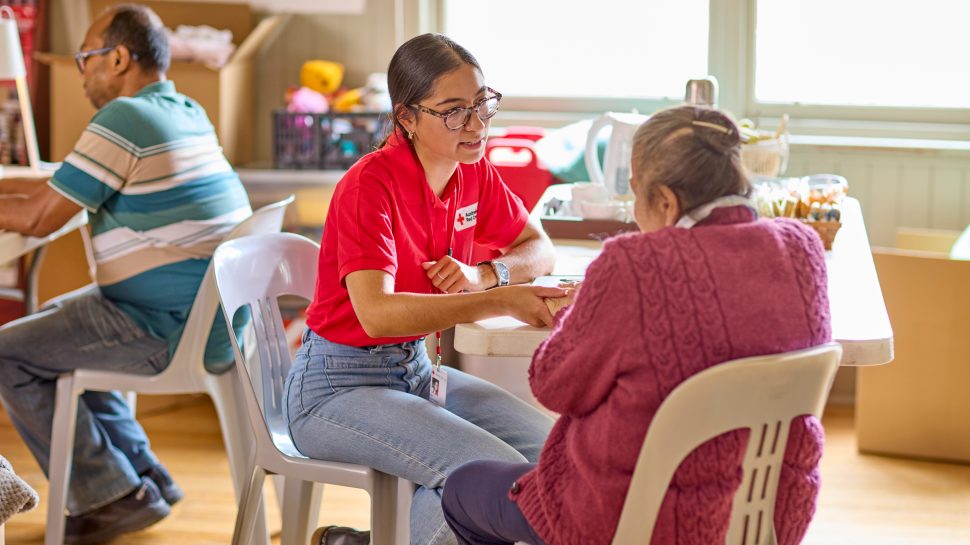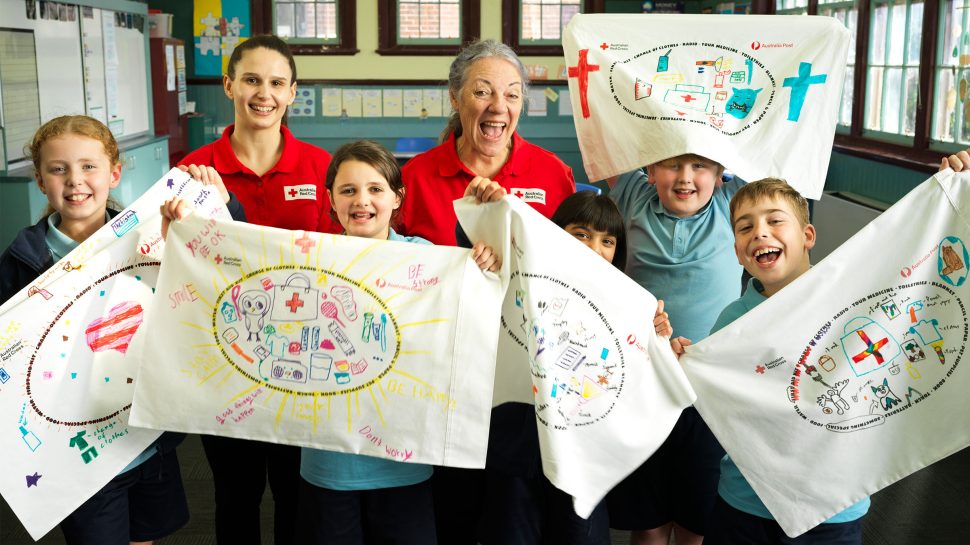From first aid to evacuation plans: Emergency resources to help you prepare for disaster
If disaster struck at your home or business, would you feel prepared? With disasters becoming more common, learn how to prepare accordingly with these emergency resources from Australian Red Cross.

Australia is no stranger to weather related disasters and in recent years, extreme weather events have become the new norm. Major disasters like the Black Saturday bushfires and the Lismore floods have been seared into the nation’s collective memory. It's only a matter of time before another major disaster strikes, which is why it’s so important that you are prepared.
Australia Post proudly partners with Australian Red Cross to support communities to prepare for, respond to and recover from disasters. We know that the more prepared you are, the better you’re able to recover.
Preparing for disaster can help lessen their impact, by reducing stress and giving you more control. We’ve compiled a list of resources to help you and your family prepare for emergencies and other crises.
1. Get in the know and have a plan in place
Disaster can strike at any time. And, when it does happen, emotions can make it hard to focus. That’s why having an emergency plan in place, that everyone in your household is aware of, can be a huge help.
A great way to find out how prepared you are for emergencies is by taking the Disaster Preparedness Quiz. It takes just a few minutes, but you might be surprised by what you learn.
The next crucial step is to start preparing your emergency plan. You can do this using the Australian Red Cross RediPlan. RediPlan helps you make important decisions ahead of time so you’re clear about how you can take care of yourself, your loved ones, and the things that are important to you. Through simple checklists and step-by-step actions, RediPlan takes you through practical actions to prepare yourself and your household.
As part of your planning, you might also find this evacuation checklist (PDF 188kB) handy—which lists everything you’d need to grab in an emergency.
To learn from those who have experienced disaster firsthand, read these tips from Red Cross volunteers to help shape your emergency plan, too.
2. Complete a first aid course
When was the last time you did your first aid? If you can’t remember, or you’ve never done one, then this is a great first step in readying yourself for potential emergencies. From treating burns to spotting the signs of hypothermia, from splints to bandages, first aid courses teach you what to do if someone gets injured in an accident or emergency.
While you’re at it, pull out your household’s first aid kit and make sure it’s stocked up with everything you’d need to administer first aid at home. Not sure what you should have in your first aid kit? Check out these first aid supplies Australian Red Cross recommends.
3. Add your ID documents to a secure app
If you lost everything, including your passport, birth certificate and driver’s license, how would you prove your identity? Australia Post has built an app to help. Digital ID is a reusable digital identity—you can download it today and go through some simple steps to verify your identity. Once done, you can use the app to store all your important documents in one place.
4. Prepare the kids
Helping kids prepare for emergencies goes beyond physical safety; it's essential to prioritise their mental health and well-being, too.
By engaging in open discussions, addressing their fears, and promoting coping strategies, we can empower them to manage stress and uncertainty. Talk about the different types of emergencies and crises that are relevant to your location, practise safety drills, and familiarise them with emergency contacts.
5. Prepare your mind for the unexpected
Disasters can be scary. Not to mention stressful. Acknowledging these emotions—and recognising how your mind and body react to them—can be helpful in learning how to manage them.
As a starting point, take a look at this worksheet on preparing your mind (PDF 370kB), which includes a comprehensive list of tips for boosting your mental wellbeing. Australian Red Cross also has some helpful information on how to anticipate, identify and manage the feelings that might crop up during a disaster.
6. Think about your business, too
If you own a business, how would it be affected in a disaster? From risk assessments in your area, to shoring up your insurances and making sure your employees are all crystal clear on your evacuation plans, there are many important things you should do as a business owner.
Use this guide to disaster readiness for business (PDF 1.4MB) to help you map out what you need to do to prepare, respond and recover from a disaster.
Remember, disaster preparedness starts now
Don’t wait until it’s too late to prepare for a disaster. Get started today by reading or downloading the resources we’ve listed above, so that you’ll be ready when the unexpected happens.
Australia Post proudly partners with Australian Red Cross
Australia Post proudly partners with Australian Red Cross
Whenever disaster strikes, Australia Post and Red Cross are there to support and help communities get back on their feet.



